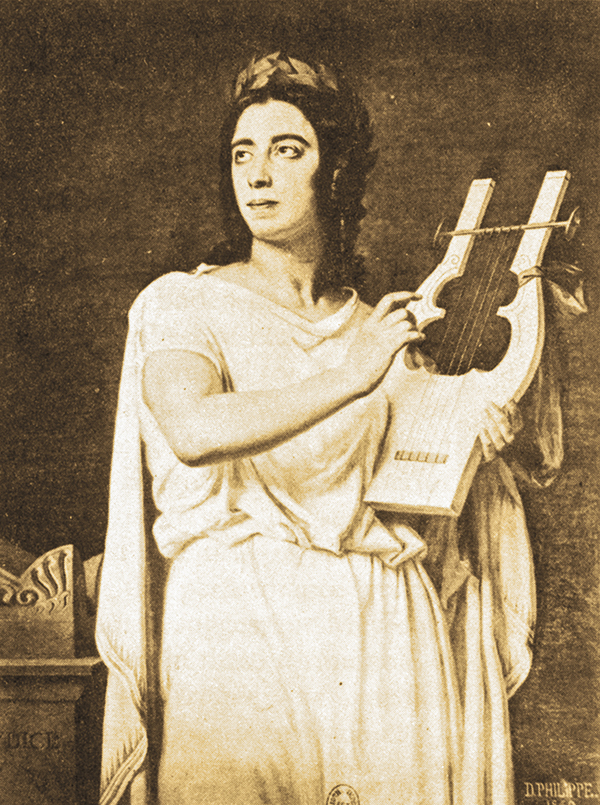Gender Screening_mdw: Gesang & Meisterinnenkurs mit Thérèse Lindquist
Die mdw ist vor 200 Jahren als Singschule mit 12 Buben und 12 Mädchen gegründet worden, was im Vergleich zu anderen prestigeträchtigen Kunstausbildungsinstitutionen des 19. Jahrhunderts bemerkenswert geschlechtergerecht war. Anders als in der bildenden Kunst wurde also Mädchen beziehungsweise jungen Frauen die Aufnahme in die Singschule nicht verwehrt, war doch die Musik(aus)bildung und hier insbesondere der Gesang ein wesentlicher Teil der höheren bürgerlichen Mädchenbildung. Grund genug, um im Jubiläumsjahr mit verschiedenen Gender-Projekten dem Thema Gesang einen Schwerpunkt zu widmen.
Gender Screening_mdw: Gesang
Bis heute ist das Fach Gesang einer Musikhochschule/Musikuniversität eines, in dem deutlich mehr weibliche als männliche Studierende ausgebildet werden. In der Podiumsdiskussion Gender Screening_mdw: Gesang wird die aktuelle Gender-Situation der Gesangs(aus)bildung der mdw ausgehend von der Situation einer Alumna (es wurde Daniela Fally angefragt) und eines Alumnus (Adrian Eröd) diskutiert. An der Veranstaltung am 14. November nehmen u. a. auch die Gesang-Lehrenden Margit Klaushofer und Patricia Simpson teil, es moderiert Andreas Holzer.

exklusive|gesellschaft
Die Repertoires von klassischen Liederabenden enthalten nur selten Lieder von Komponistinnen – und das, obwohl gerade das Lied eine von Komponistinnen häufig gewählte, weil gesellschaftlich tolerierte, Gattung war. Das von Rannveig Braga-Postl initiierte Gender|Queer-Call-Projekt exklusive|gesellschaft verbindet institutsübergreifend Lehre, Kunst und Wissenschaft: Studierende der Fächer Gesang und Liedbegleitung lernen Lieder von hervorragenden Komponistinnen kennen und schätzen, erhalten im Rahmen der Lehrveranstaltung Die Pianistin spricht. Gedichtvertonung als dialogische Kompositionsform von Annegret Huber (Institut für Musikwissenschaft und Interpretationsforschung der mdw) gendersensible musikanalytische und historische Einblicke in ausgewählte Werke und können diese in einem Meisterinnenkurs erarbeiten und am 25. November zur Aufführung bringen. Titel und Untertitel des Projekts verweisen darauf, dass das Komponieren von Liedern in die soziale Praxis bestimmter Schichten respektive Klassen (des Adels, des Klerus und des höheren Bürgertums) eingebettet war. Die für den Meisterinnenkurs geladene Pianistin und Liedbegleiterin Thérèse Lindquist (Abteilung für Gesang, Universität Mozarteum Salzburg) beschäftigt sich seit vielen Jahren sowohl als Künstlerin wie auch als Lehrende mit Gesangsliteratur von Komponistinnen und betont die Wichtigkeit, diese in das Unterrichtsrepertoire von Musikuniversitäten aufzunehmen, damit SängerInnen später „wie selbstverständlich“ ein geschlechtergerechtes Repertoire für ihren eigenen Liederabend zusammenstellen können. In einem Einführungsvortrag zur Veranstaltungsreihe spricht die Musikwissenschaftlerin Annegret Huber Vom Vertonen eines Gedichts als soziale Praxis und geht dabei auf Aspekte von Exklusion und Inklusion ein. Das Abschlusskonzert des Meisterinnenkurses bildet schließlich den musikalischen Rahmen für die Präsentation der Biographie über die Sängerin und Komponistin Pauline Viardot-García, die von der renommierten und bei der Veranstaltung anwesenden Musik- und Genderforscherin Beatrix Borchard (Hochschule für Musik und Theater Hamburg) verfasst wurde.
exklusive|gesellschaft
Meisterinnenkurs – Vortrag – Konzert – Buchpräsentation zu Gedichtvertonungen von Komponistinnen
Do, 23. bis Sa, 25. November 2017
www.mdw.ac.at/exklusivegesellschaft

